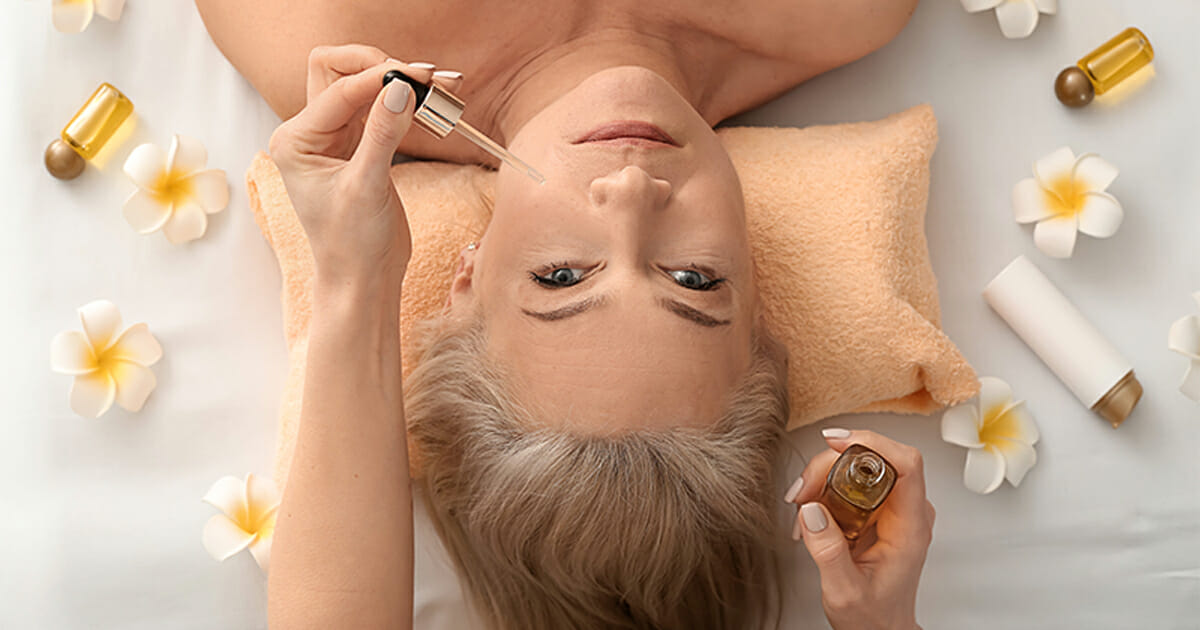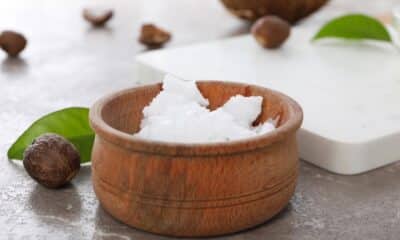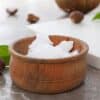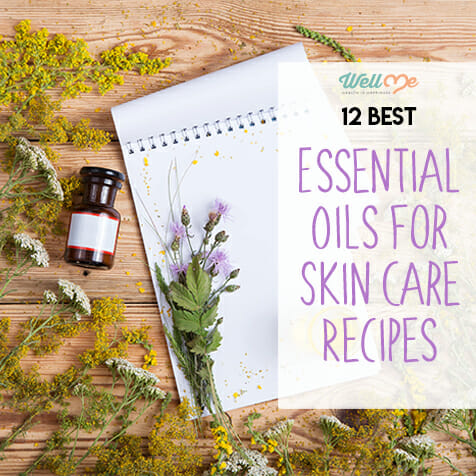12 Essential Oils for Skin Care Recipes
Essential Oils – It’s always fun to experiment with essential oils for skin care recipes. However, it’s not always easy to decide which all-natural essential skin oils are best for you. This is where we’re coming in!
Let’s talk about the most nutritious essential oils for skin care recipes and share exactly how they can benefit your skin type. There are so many wonderful essential oil recipes for skin out there, but you don’t have to feel lost any longer.
1. Orange Essential Oil
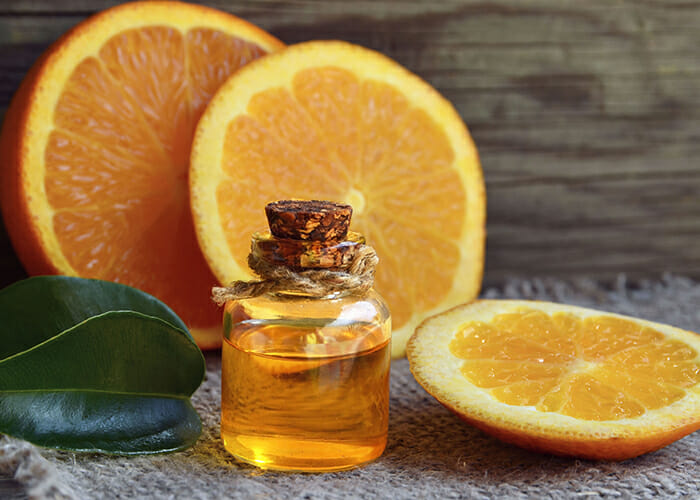
- Skin Type: Suitable for all skin types, especially uneven toned or dull skin.
- Great for use in: Daily face washes and soaps.
- Benefits: Orange essential oil for skin can help rejuvenate skin and create a brighter, tighter look. Basically, orange oil contains skin lightening properties that work well on your under-eye bags and sunspots.[1] Plus, it contains anti-inflammatory and antioxidant properties from the chemical component B-myrcene.[2] Lastly, it’s an antimicrobial agent that’s great for sanitization.[3] Altogether, orange oil smells fantastic and is a great choice to use in various essential oils for skin care recipes.
2. Lemon Essential Oil
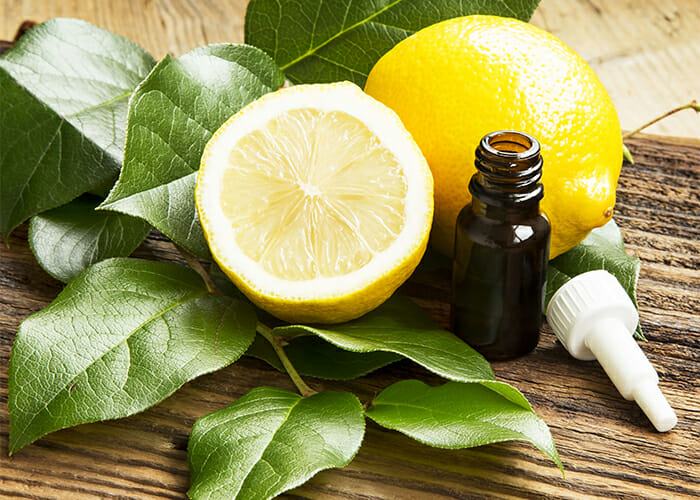
- Skin Type: Can help improve oily skin and uneven skin tones.
- Great for use in: Face masks and toners.
- Benefits: Lemon essential oil for skin has two primary benefits. First, it’s an astringent, meaning it can help reduce your pore size and eliminate any excess oil on your skin.[4]’[5] Second, lemon oil has skin lightening properties, so it can help reduce dark spots, scarring, or uneven skin tone.[6] Lemon oil is ideal for combination or oily skin care recipes.
3. Lavender Essential Oil
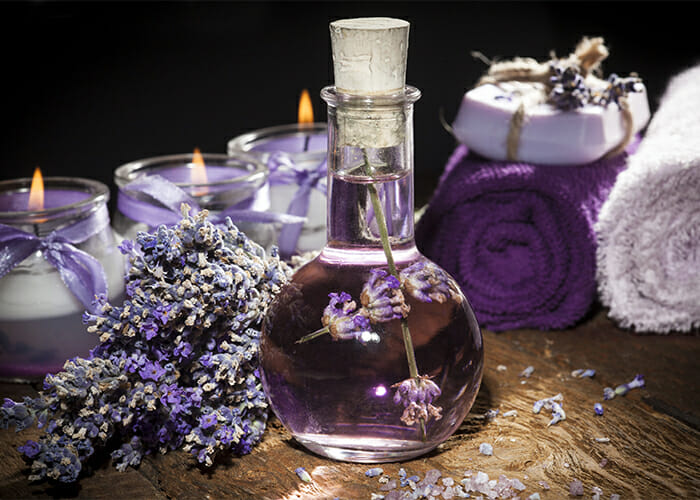
- Skin Type: Ideal for sensitive skin because
it’s mild in nature and rarely causes skin reactions. - Great for use in: Nearly any essential oils
for skin care recipes. Add it to your soaps, toners, or face masks. - Benefits: Lavender oil is anti-inflammatory,
antimicrobial, and antioxidant.[7] This makes
it excellent for potentially soothing skin conditions like dermatitis. In
addition, it’s a prime anti-aging agent because the high antioxidant content
can help decrease the damage caused by free radicals.[8]
4. Frankincense Essential Oil
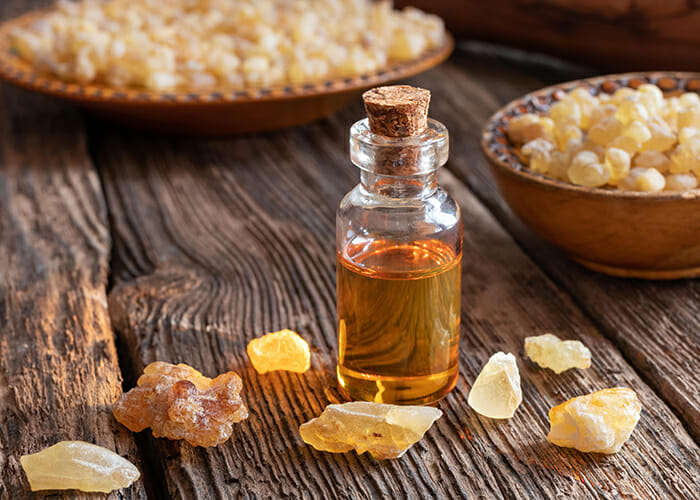
- Skin Type: Fitting for skin with wounds or acne.
- Great for use in: Spot treatment creams and all over body oil blends.
- Benefits: Frankincense is a strong ingredient to use in nourishing essential oils for skin care recipes. It’s antibacterial and safe to use on wounds.[9] It can even help wound healing.[10] Also, frankincense comes from tree resin with powerful antioxidant activity to fight free radicals that cause skin damage and aging signs.[11]
5. Tea Tree Essential Oil
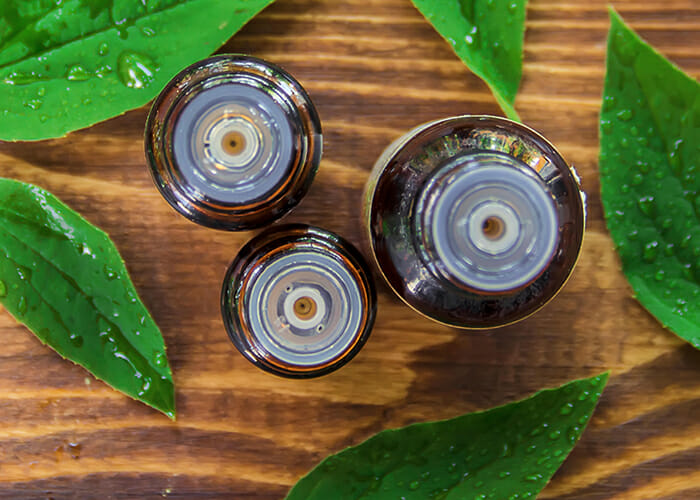
- Skin Type: Suitable for acne-prone skin.
- Great for use in: Facial cleansers, toners,
and acne spot treatment creams. - Benefits: Tea tree oil is antimicrobial and
anti-inflammatory.[12] It can
potentially improve acne over time with direct application,[13]
making it a perfect addition to your routine to keep your skin clear and clean.
6. Clary Sage Essential Oil
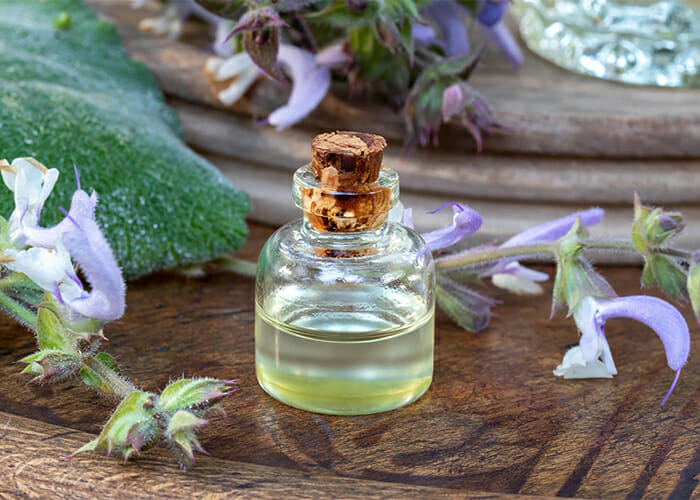
- Skin Type: Best for hormonal skin, with dry or
oily patches. - Great for use in: Facial cleansers.
- Benefits: Clary sage is one of the better
hydrating essential oils for skin care recipes. That’s because it can ease your
dry skin woes by helping to regulate sebum (natural oil) production in your
pores.
7. Lemongrass Essential Oil
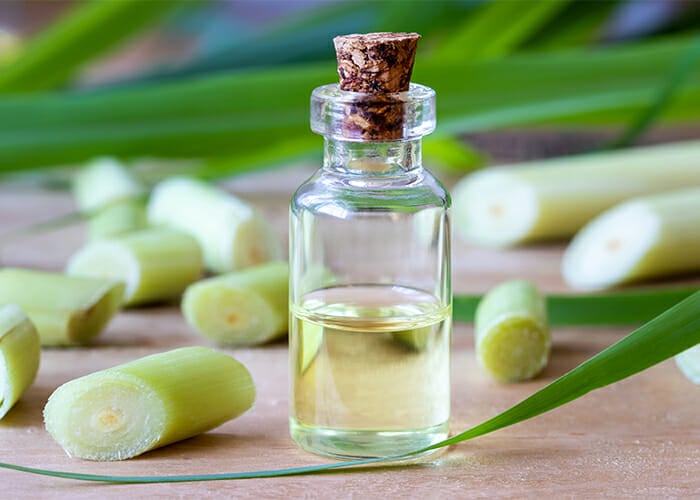
- Skin Type: All skin types.
- Great for use in: Soaps and skin cleansers.
- Benefits: Lemongrass is an amazing purifying oil for when you need a boost of cleanliness. It’s antiseptic, antifungal, and anti-inflammatory.[15] It’s a pretty strong cleanser on your skin, so be sure to dilute it carefully so as not to cause any irritation. You can use it daily in face washes or shower soaps to clarify your entire body.
8. Sandalwood Essential Oil
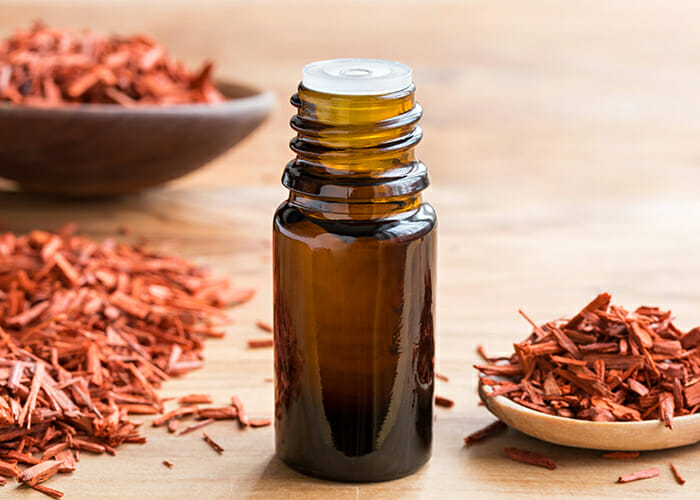
- Skin Type: Good for reactive, sensitive skin.
- Great for use in: Inflammation relief cream.
- Benefits: Sandalwood is a great anti-inflammatory oil that can help control topical skin issues like acne and eczema.[16] Plus, it can help regulate your cells to encourage them to rebuild collagen.[17] This oil can potentially soothe your skin conditions and fight signs of aging, such as sagging skin, all at once — making for a great addition to any essential oils for skin care recipes.
9. Geranium Essential Oil
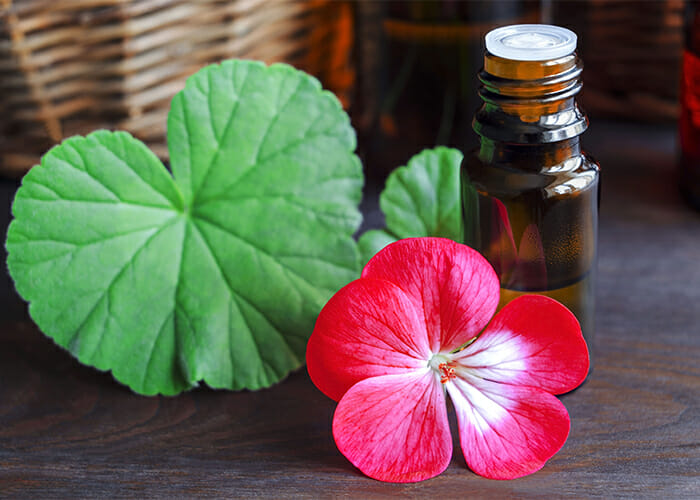
- Skin Type: Great for all skin types,
especially aging or sagging skin. - Great for use in: Night serums and face/neck
creams. - Benefits: You can use geranium to make one of
the best anti-aging essential oils for skin care recipes. This oil is high in
antioxidants to help firm sagging skin around your problem areas.[18] Not only
that, but it also has sun protectant qualities to help keep your skin safe, and
encourage your cells to repair previous sun damage.[19]
10. Myrrh Essential Oil
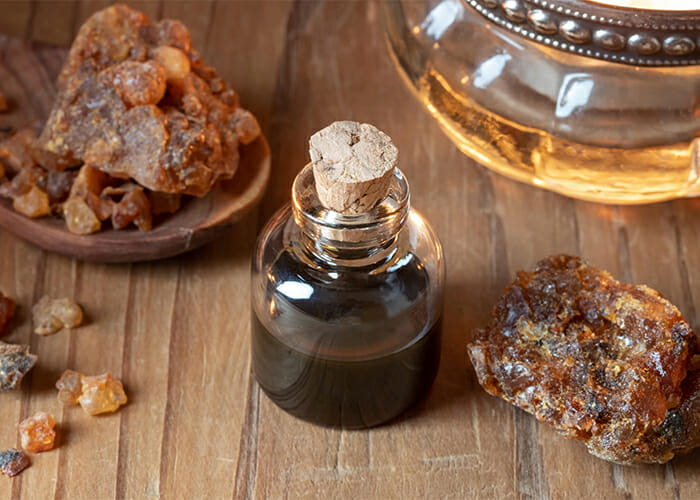
- Skin Type: Best for aging skin.
- Great for use in: Face, neck, and hand
overnight creams. - Benefits: Myrrh is one oil that’s sadly
underrated in mainstream culture. If you didn’t know already, myrrh essential
oil has had amazing results when used to reverse damage caused by free
radicals.[20] In fact,
some studies have shown that it’s even better at repairing your skin than the
more popular Vitamin E.[21] It’s
perfect for skin that’s accumulated a lot of damage over the years and needs a
little pick-me-up.
11. Pomegranate Seed Oil
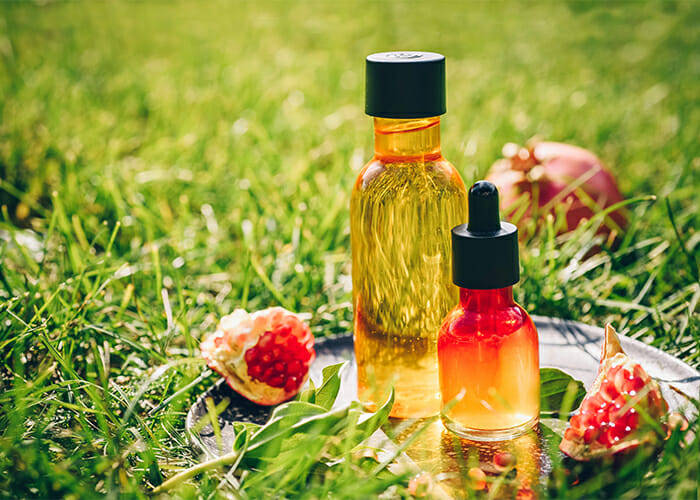
- Skin Type: Great for all skin types.
- Great for use in: Body butter and stretch mark rub.
- Benefits: This oil is great for rejuvenating sagging skin and helping to reverse stretch marks.[22] But that’s just the beginning. Pomegranate oil can encourage your body to build a more resilient epidermis skin layer to protect it further from outside damage.[23] Also, it assists your cells with collagen formation and protein synthesis to help keep you wrinkle-free.[24]
12.
Rosehip Seed Oil
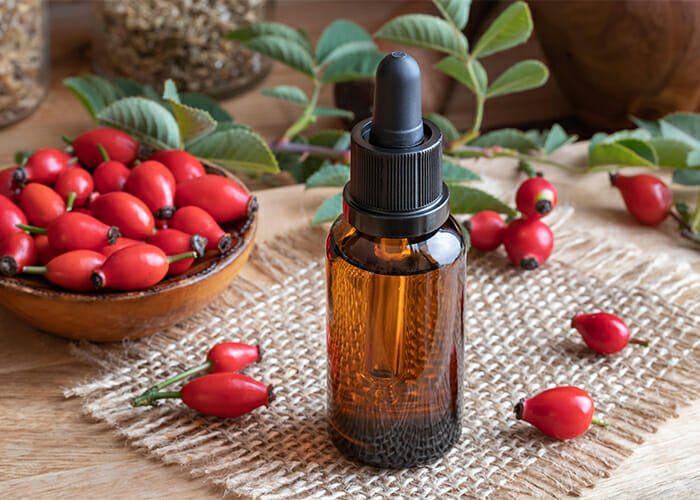
- Skin Type: Suitable for wrinkled skin.
- Great for use in: Anti-aging night serum and face lotion.
- Benefits: Rosehip seed oil is a carrier oil that can be your go-to for skin blends. It can help hydrate your skin and improve crows feet wrinkles over time.[25] Plus, it can help strengthen your skin barrier, allowing it to be more elastic to keep it safe from toxins and damage.[26] So if you’re looking for one of the most hydrating essential oils for skin care, using rosehip seed oil is a must.
How to Use Essential Oils for Skin Care Recipes

Now that you have a better idea of which oils can work for your skin type, it’s time to discover how to use these nourishing essential oils for skin care recipes. So, here are a few tips and tricks to keep in mind when making these blends for your skin.
- Pay attention to photosensitive oils
In short, these oils can cause irritation and/or sunburns when used topically if you go in direct sunlight. All citrus oils (like lemon and orange) fall into this category. Remember to wait up to 12 hours after applying these oils before spending time in the sun. - Dilute oils appropriately
You should always check whether the oils you choose to use are sensitive for skin. Some examples include oregano and other “hot” oils like cinnamon and clove. Keep in mind, these should be diluted even more than the standard rate of six drops per 30ml of carrier oil. Test your diluted blend on a small patch of skin before using it everywhere! - Watch out for your eyes
It can be tempting to use these amazing oils on the skin near your eyelid area. However, you should refrain from this as the oils can be absorbed into your skin and transfer to your eye, causing irritation and pain. Plus, there’s been no research to support applying essential oils near or in your eyes so steer clear of this for your own safety. - Enjoy your benefits and have fun!
Using essential oils for beauty is a fun and natural way to look and feel great. With every drop and blend you create, your body and mind will thank you!

